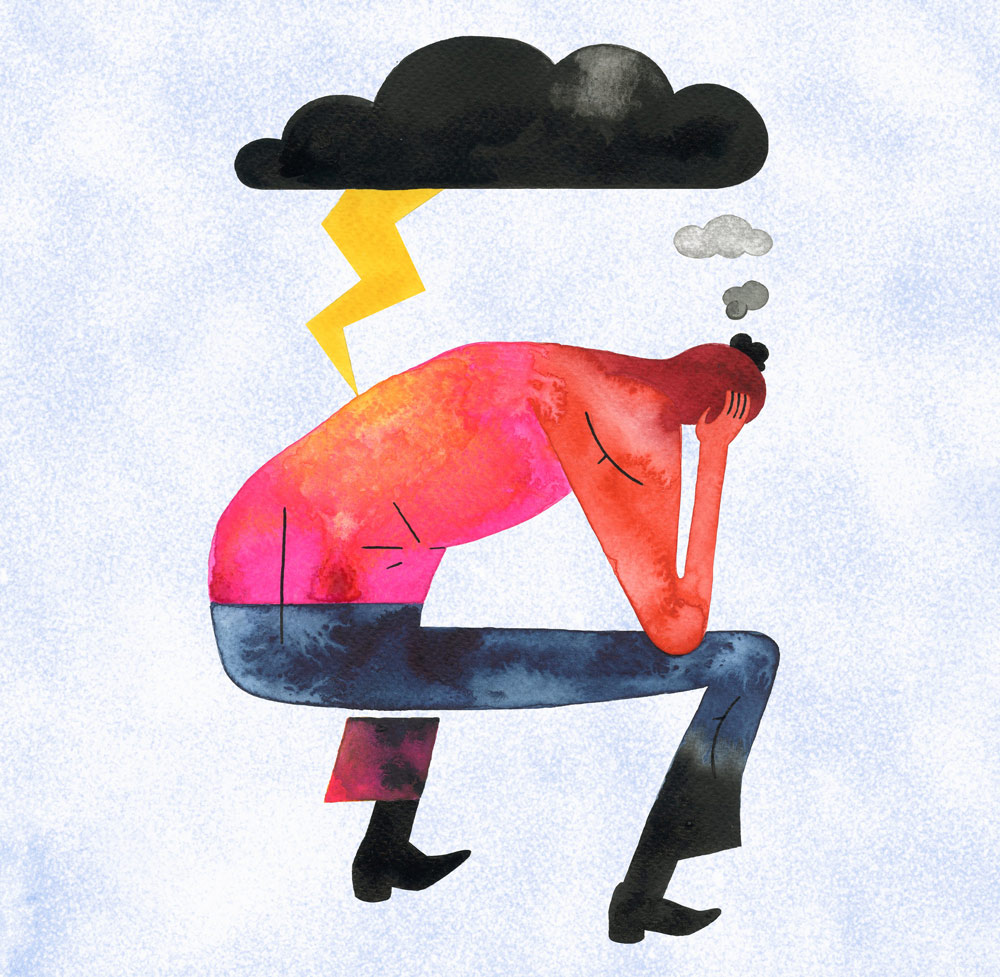One of the world’s foremost thinkers on thought, Paul Thagard’s (BA’71) groundbreaking research has made lasting contributions to cognitive science, psychology and philosophy. Searching for answers across disciplines, he asks the important questions that define us as humans. His approach employs the scientific method and computer modeling to analyze consciousness: how the brain produces emotions, feelings, ideas and creativity. His engaging blog Hot Thought on the Psychology Today website introduces a lay audience to new perspectives on age-old questions: What is the self? What is free will? What is intelligence? What is love? This article by Thagard, one of the 2016 alumni of influence, is reprinted from Hot Thought.
PSYCHOLOGISTS ARE FAMILIAR with motivated inference, in which people acquire beliefs with shaky evidence because the beliefs make them happy. For example, you naturally want to believe that you are attractive, successful and healthy, so you look for reasons to support these beliefs. Much less well-known is fear-driven inference, in which people acquire beliefs with little evidence because the beliefs scare them.
Although it seems weird that fear could lead to beliefs, consider the following examples in domains that are important to people.
- Romantic relationships: “My lover looks distant, so she must be having an affair.”
- Parenting: “I haven’t heard from my teenager for a few hours, so he’s probably in trouble.”
- Medicine: “This rash means I have leprosy or some other serious disease.”
- Politics: “Today’s tough times result from an international conspiracy.”
- Sports: “My team is hopeless.”
- Research: “The editor’s delay in responding to my article means he/she hates it.”
- Law: “The courts are so biased that I’m bound to be convicted.”
- Religion: “It is predetermined that God will punish me eternally.”
- Economics: “The economy is doomed to perpetual recession and depression.”
What are the mental mechanisms that can lead people to believe what they fear because they fear it?
David Nussbaum and I recently published a chapter in Model-Based Reasoning in Science and Technology about fear-driven inference that offers a cognitive-emotional explanation of how it comes about. We propose that the mechanism underlying fear-driven inference is gut overreaction, which involves an ongoing feedback loop between judgment and emotional response.
Consider the example of Othello in Shakespeare’s play, who becomes convinced that his wife Desdemona is having an affair with minimal basis for the belief. Iago’s misinformation leads Othello to suspect that Desdemona is cheating, but this makes him feel bad, which in turn makes him even more suspicious of her. The fact that she might be unfaithful causes him to feel bad about her, which loops to make him more suspicious of her.
The general case is that thinking that things are bad (with children or anything else that matters) causes you to feel bad, which in turn leads you to become more convinced that things are bad. In fear-driven inference, the amplifying feedback loop between inference and emotional reaction leads to negative emotions such as anxiety and anger. A gut overreaction produces excessively negative emotions that compel people to focus on negative possibilities and thereby become more prone to believe them.
How can people avoid fear-driven inference and its flip side, motivated inference, which can also be bred by gut overreactions? Completely separating cognition from emotion is no solution, because our brains integrate the two, with emotion areas such as the amygdala thoroughly connected with cognitive areas such as the prefrontal cortex.
Nevertheless, it can help to avoid fear-driven and motivated inference to ask yourself the following questions:
- What is the full range of evidence for the belief that is making you scared or happy?
- What are the alternative explanations for this evidence?
- What do other people who do not have your fears and motivations think about the plausibility of the belief?
Following this procedure might help you avoid the gut overreactions that mislead people because of their hopes and their fears.
